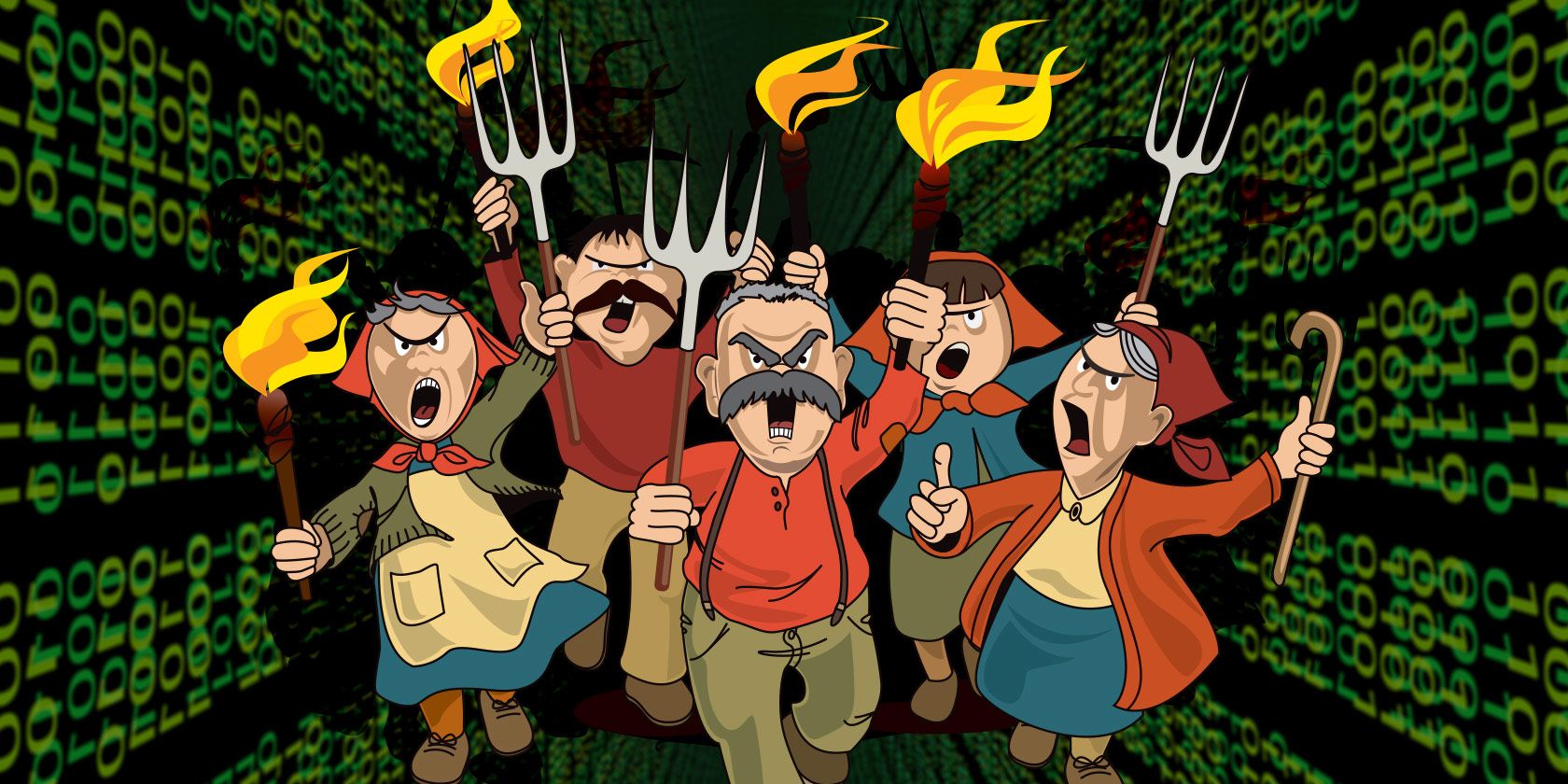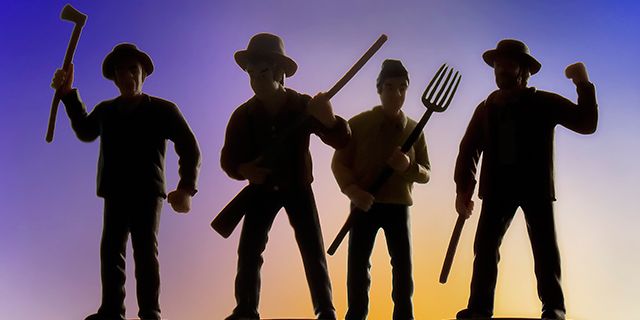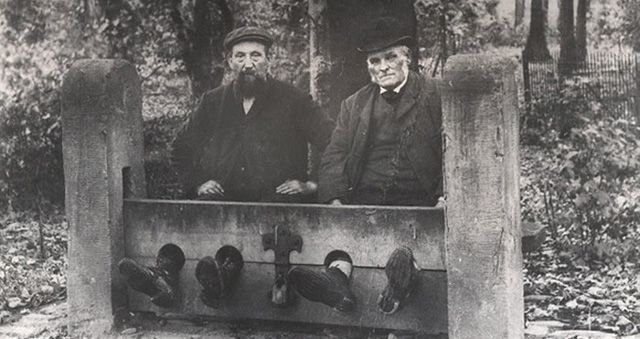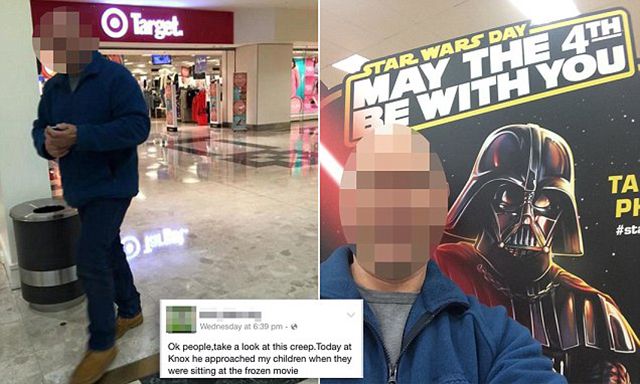A lion gets lured out of its protected habitat and killed. A person is raped and police refused to investigate. A parent was falsely accused of being a child molester.
No matter who you are, at least one of those events tugged at your heart strings. At least one of them incited some rage in you. In the past, all we could do was hope or say a prayer that it would get resolved. Then we’d try to make our immediate world a little better.
“It takes great courage to open one’s heart and mind to the tremendous injustice and suffering in our world.” - Vincent A. Gallagher
Then along came the Internet. Now we can talk back to the newspapers, we can speak back to the radio, we can be our own publisher or broadcaster now. Now, we have the power of media and we’re not going to take it anymore. Good idea or bad idea? A force for justice, or a digital lynch mob?
In some cases, the outcome has been positive by most people’s accounts. In some cases, lives were destroyed. Even when it wasn’t necessary or, even worse, when the evidence was false. Why do we get so mean on the Internet?
It seems, more often than not, that the outcome of Internet mob justice could be even more unjust than whatever the accused allegedly did. Sometimes, we persecute people on the Internet for just being noticed.
How Did This All Start?
It’s hard to say when the power of the Internet was first used to exact justice. Possibly the first case of the Internet getting used for activism was in 1990. Lotus (then a software giant) and Equifax (the credit reporting agency) had planned to produce a database called MarketPlace. It listed the names, addresses, and spending habits of 120 million Americans. This was a huge violation of people’s privacy, yet the average person never would have heard about it.
Computer enthusiasts and professionals did hear about it on electronic bulletin boards and in e-mails. Over 30,000 people told Lotus that they wanted their information removed from the database. The database product got pulled. Lotus cited as the reason, “…the substantial, unexpected additional costs required to fully address consumer privacy issues.” Unfortunately, exploiting privacy for profit is still an issue today.
That seems like a righteous use of technology to rise against an injustice. There was a clear violation of law, proof that it was going to happen, and people did what was their legal right to do. They simply asked to not get included. No courts, no fuss, no one got hurt. So what happened to this kind of activism?
When Did it Turn Ugly?
Again, it’s hard to identify the turning point. Still, it’s easy to define when activism becomes vigilantism. It’s at the point where it goes from acting lawfully, to acting on dubious information and without applying the golden rule. The golden rule being, of course, to do to others as we would have them do to us. That is when the opportunity for an injustice to be met with an equal or greater injustice arises.
“Lands of great discoveries are also lands of great injustices.” - Ivo Andric
It’s a hackneyed comparison, but the Internet is still a lot like the wild west you’ve seen in old movies. In such a vast expanse, with no real law, or any sort of governance, we’re open to do pretty much whatever we want to do.
That’s a great thing! And, that’s a bad thing!
It all depends what we do with that freedom. Often, whoever is fastest on the keyboard gets to deal out their brand of justice.
Internet Shaming - The New Scarlet A
Much of the mob justice takes the form of public shaming. Shame is a much-debated topic. Some call it an emotion we feel when we see that we haven’t kept ourselves to our own standards. Some call it an external effect, heaped upon us when someone else calls us out on what we did.
The debate deepens when we start to look at shaming as an effective or ethical way to discipline someone. About a hundred years ago, we stopped putting people in stocks and branding their skin for their crimes. We saw that the effect of that could extend to the family and friends of the accused. We saw that sometimes the punishment just never ended.
So what makes it alright for us to shame people on the Internet? Or do we just think that we can get away with it because everybody else is doing it, and we use pseudonyms? Do we feel bolder because we are anonymous, or as the case may be, Anonymous?
“Those who plead their cause in the absence of an opponent can invent to their heart’s content, can pontificate without taking into account the opposite point of view and keep the best arguments for themselves, for aggressors are always quick to attack those who have no means of defense.” - Christine de Pizan
This quote speaks about how easy it is for us to judge someone we’ve never met on just a few words someone else has told us. It’s even easier to attack someone when they don’t see it coming.
For example, the person from Melbourne who was falsely accused of being a pedophile on Facebook for taking a selfie with a Star Wars poster. He made the mistake of saying anything to some kids that were nearby. He said, “I’ll only be a second, I’m taking a selfie to send to my kids.” When the story got to a parent of one of the kids, it became the person saying, “Hey kids.”, then taking a picture of them, and then saying “I’m going to send this to a 16 year old.”
Set aside the issue of a man not being able to take a picture in public, or say anything to kids, without getting called a pedophile. Just look at the legal aspects. The parent did share their concerns with mall management and police. That’s the right thing to do when concerned. Where it went too far was when the accuser shared it with Facebook. There, they posted, “Ok people, take a look at this creep.”, and, “…hopefully he is caught.” The parent became the judge, handed out a sentence, and posted it in the town square.
That’s too far. The accused person felt they had to go through a police interrogation and search to clear their name. There’s also the fact that the accusation went out to over 20,000 people – with a picture of the accused.
What’s on the Internet stays on the Internet. How many times is this person going to have to explain the situation or defend his actions? For how many years? For what? Being a polite person and taking a selfie, like seemingly billions of people do every day?
But it gets worse. After this, there was a backlash against the accuser. Death threats had the accuser appealing to the public by apologizing for the public shaming.
“My kids are now suffering because of a stupid mistake I made.”, she said.
Two families torn apart. Two massive injustices – all for a wrong that never happened.
What if the Accusation is Accurate?
The Internet is still ablaze with outrage over the demise of Cecil the lion. It’s safe to say rightfully so. But is it right that people vandalized Walter Palmer’s home?
Vigilantes spray painted “Lion Killer” on the garage door. They left pickled pigs feet in the dentist’s driveway. Death threats came from all directions. Is any of that fair? Dr. Palmer got forced to shut down the dentistry practice. Is that fair to the patients?
Perhaps the most salient question is, did doing those things fix anything? At best, it made the mob feel like they’ve gotten some vengeance. At worst it may destroy the lives of Walter Palmer and the Palmer family.
Sorry, that’s just not the mob’s job.
What if we used the power of this ubiquitous technology to lobby for legal justice? What if we all wrote to our politicians, showing support for extraditing Dr. Palmer? Zimbabwe is seeking extradition. We could use our social networks in a democratic fashion. We could say, “Hey, if you decide to extradite Dr. Palmer, you’ll get no complaints from us.”
Dr. Palmer claims the Internet mob justice has left him unscathed. He claims, “…everything is just fine.” It remains to be seen how long everything will be fine for Dr. Palmer, though.
Has Internet Mob Justice Ever Seriously Hurt People?
Recall the events of Donglegate. Two people made a genital-related joke about a piece of hardware known as a dongle. Phonetically, the word is similar to dong – a slang word for a penis. Then one of these people made a comment to the other about the presenter on stage, saying, “I would fork his repo.”
“Those who can make you believe absurdities, can make you commit atrocities.” - Voltaire
Another person overheard this discussion, and felt the need to bring this matter to the attention of the Jury of the Internet. The only evidence provided was a picture of the two people and the prosecutor’s statement of, “Not Cool. Jokes about forking repo’s in a sexual way and ”big“ dongles. Right behind me…”
To clarify, the person who made the, “[I would fork that guy’s repo].” remark said it is a technoslang way of saying, “I would be glad to use (fork) that person’s work (repo or repository) in my projects.”
The debate still continues about whether the statements were sexist or not, and whether either party should have done what they did. As long as we are willing to talk about it, the debate will continue.
What didn’t continue were the jobs of two people; one of the accused, and the accuser. Also, there were violent threats against those involved from all sides. There were libelous and slanderous insults. There is the forever-lasting effect of getting associated with this fiasco every time their names get mentioned.
The accuser’s employer suffered a shut down at the hands of hackers, dishing out justice, in the form a of Distributed Denial of Service (DDoS) attack. People who had nothing to do with this lost wages. Things went too far.
What if the Accused was Found Guilty by Law?
There was a case where Internet intervention helped force a criminal trial to court. But only after going through the absurdities of victim shaming, cover-ups to protect the accused, and a police service that just didn’t seem to care. In Steubenville, Ohio, two teenagers raped and abused another teenager and posted pictures of it on-line.
But somewhere along the way, major media released the name of the victim. With the case being so exposed by the Internet mob, thousands of people now knew the victim’s name. The news stories were shared and re-shared. Now, not only are there pictures of the victim being violated, the victim’s name now rides along with those pictures.
“If the misery of the poor be caused not by the laws of nature, but by our institutions, great is our sin.” - Charles Darwin
Although the initial intent may have been good, the outcome was that a person who suffered one of the most humiliating things a person can suffer will continue to be reminded of it. They will have no control over when or where. The Internet does not forget. That’s the case of the victim in the Steubenville, Ohio rape trial.
Has Internet Mob Justice Ever Had Only Positive Results?
Whenever vigilantism is involved, and laws get broken to try to get some sense of justice, the quality of the outcome is subjective at best – and dubious at worst. In another rape case, the argument could be made that there were several positive outcomes. Perhaps not what the people of the Internet were hoping for, but still positive.
The case of Rehtaeh Parsons draws many parallels to the Steubenville case. She was at a party and was allegedly sexually assaulted by two other people. Pictures got taken and spread around on the Internet. Mocking and bullying of the victim continued through social media. Tragically, Rehtaeh took her own life to try to escape the torment.
When the people who loved Rehtaeh couldn’t get the legal justice that they deserved, they took to social media. Yet their pleas weren’t for smiting vengeance on the accused, but for a re-investigation of the case. It took a long time and the eventual intervention of Anonymous to force the government’s hand.
Is that the Internet mob going too far? Rehtaeh’s father, Glen Canning, doesn’t think so. It is possible that Anonymous’ intervention prompted the forming of an independent inquiry into the handling of the case, although officials won’t ever admit that.
Further investigation did lead to charges. Convictions came only on the child pornography charges. In Canada, if you take or distribute a lewd picture of an underage person, it is child pornography – it doesn’t matter if you are underage as well. Perhaps not the outcome the Internet was hoping for, but it is some legal justice after all.
Positive outcomes still continue to come from this situation. Glen Canning has also been sharing the tragedy that criminal harassment, a.k.a. bullying, has on young people. He successfully used the platform to raise awareness. This led to more specific and stronger laws about harassment online.
The case also lead to reviews of how schools handle mental health issues, and educate students. It has also led to a call for more youth psychiatrists for the province. At the time of writing this, there are only 17 youth psychiatrists in Nova Scotia, serving a population of around 1 million people.
There have also been inquiries into how hospitals handle youth presenting with mental health issues.
It could be said that the Internet’s intervention has had very positive outcomes in this case. Who knows how many lives will be saved from death and ruin, just in this one tiny province?
So, Has Internet Mob Justice Gone Too Far?
The question has no simple global answer. As we’ve seen, there have been cases where good came from the power of people on the Internet. Sometimes we’ve forced the hand of the law, and sometimes we’ve challenged a person’s ethics. Hopefully, they will change.
However, Internet vigilantism has resulted in real word harm to either the accused or the accuser, in so many cases.
The argument still circles back to the historical perspective on vigilantism and public shaming.
“Rage — whether in reaction to social injustice, or to our leaders’ insanity, or to those who threaten or harm us — is a powerful energy that, with diligent practice, can be transformed into fierce compassion.” - Bonnie Myotai Treace
There are good reasons why we abandoned these methods around a hundred years ago. The punishment can far outweigh the crime and the people involved can be robbed of a chance to change themselves. Perhaps it’s best if we left the archaic use of new technology behind as well.
Image Credits: Angry Villagers via Shutterstock, Cecil the lion, US Capitol Building, Cole Harbour District High School, Men in Bramhall Stocks, Angry Mob of Four, via Wikimedia, Steubenville Ohio US Route 22 Bridge, Boston Public Library, Apple II, Jurvetson, via Flickr, Melbourne Selfie, via Linkis.









